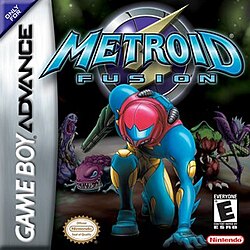I've been "in country" now for just five days, and already the experience is changing for me. This post is meant to be a snapshot of my mental state on arrival, and I'll revisit it in another post upon exfiltration (always wanted to use that word).
I'm fairly well-travelled, and I've been in poor countries before: Ukraine, Belize, Guatemala, Quebec -- but in those places I could, more or less, blend in. Crowds (becoming mobs) were my biggest fear coming here, and they've been a fairly irrational fear for most of my life. I don't like being an obvious target. I try not to attract attention to myself. I was worried that I wouldn't be able to do that here.
 |
| It sucks to be a chicken in a market in Malawi. |
Here, however, white equals money. And folks don't have any. So I find myself swarmed. Swarmed by people just begging, often sporting a Chelsea jersey: "Hey boss, come on boss." Swarmed by people trying to sell me random stuff - guys seem to just have a handful of sunglasses or fruit or shoes: "Hey boss, good price, good price." Being called "boss" all the time takes some getting used to. Walking into a market, I get some sense of what life must be like for George Clooney all the time.
The swarming is extremely uncomfortable for me. People get right in your face, and often telling them "No" or "I don't want any" is taken as a sign they should try harder.
On one occasion two guys followed me home with what I judged to be the intent to just take what I had should the opportunity arise (which I'm happy to report it didn't). Of course on the flip side of this are hundreds of friendly, curious folks who just want to say hi. Sorting people into intention piles is practically impossible when you first get here.
 |
| The walk to work. In most places that ditch doesn't exist and you are on the road with the cars and bikes. |
I've seen that look of recognition a lot now. People couldn't be happier to see me if I was a stack of pancakes and syrup. I feel like nothing so much as a giant walking pinata.
When he negotiates the traffic and makes it to us (crossing a street in Lilongwe is as dangerous as crossing rapids) my companion introduces his friend as Happy George, so-called because "He's always happy." And walking beside this great white whale, he certainly lives up to his name. As they start talking, their schtick becomes apparent: they've worked together before. Happy George asks me where I'm from, I reply "Canada" and they tell me they have many friends from Canada. Feeling clever, I ask them who these friends are. They are only able to come up with one: a woman with Engineers Without Borders, who apparently doesn't have a name. Happy George presses on, asking me where in Canada I'm from, and upon learning it's Montreal asks me if I speak French. I say yes, which may or may not be another lie depending on how francophone you are.
The preliminaries over, Happy George and Co. move into the pitch proper. They tell me they are students at the technical college, one in welding, the other in carpentry. They say they also make crafts with local materials. Having categorized me as "Ayn Randian" they tell me they would never ask for a handout and think that people should work to get ahead. Touching my arm, the first gentleman (whose name I never got) adds, "We don't think anyone is rich just because of the colour of their skin."
And that was the biggest lie of all. Everyone is Malawi thinks I'm rich because of the colour of my skin. And they're not wrong.
But it is difficult for me to deal with the expectation that I am going to "make it rain" (in the strip club sense) everywhere I go. In the midst of writing this, I was interrupted by Vanessa because she and another Canadian (Noella) were heading out to a tiny credit union and an orphanage in another part of town. Having never been to an orphanage before, I'm not sure what I expected, but it was probably something along the lines of Dickensian kids in petticoats and fingerless gloves, sewing wallets and eating gruel.
As soon as the kids saw the truckload of mzungus, they went berzerk - screaming and chanting in Chichewa which was translated to us as "They've arrived." This concerned me. How did they know we were coming? Why is this an event? Then an old man sporting a wool sweater vest and the single largest driving cap I've ever seen (he could have been heading out to the links himself) introduces himself as Alex the "Director of this operation." The kids are rounded up and made to sit quietly while he settles in to his pitch. He starts talking about financials, which organizations have supported them in the past, mission statements, and so on. He seemed particularly proud of a mountain bike one organization had bought him. But it was all at much too high a level for some out-of-work writer wannabe from Canada. He was speaking as if we were visiting foreign dignitaries.
Before I could say "There's been a mistake" we were ushered inside, and placed in three chairs at the head of the class and I realized there had been no mistake at all. The kids were made to put on a show for us. They recited the alphabet, the months of the year and other things, which they shouted at the top of their lungs. Truth be told they were quite charming. Then they were made to be quiet again while Alex, in true Glengarry Glen Ross fashion ("Always Be Closing") moved in to seal the deal. This time the pitch was aimed to appeal to our liberal guilt. "These kids' parents died of AIDS." "We feed them, they can't learn on an empty stomach." "They didn't eat today." And so on. Then he gave some helpful numbers, how much to support them for a year, how much for a month - to help us make a decision. I won't lie. I was pissed at being made to pay for a service I didn't want, and to be put through this guilt-based mzungu juicer. But I did feel guilty and I did want to do something. So, Vanessa and I gave $50 USD. Well, Vanessa did, but I'll pay her back.
Leaving the orphanage, I couldn't help but wonder if the only thing the kids learned there was the song and dance routine for foreigners and if we had just bought Alex another mountain bike.
Way back when I was doing my anthropology degree we talked a lot about participant observation. The problem as we saw it then was that by participating you change what's going on, so what are you observing? In Malawi, by observing I change what's going on, and it seems very difficult to participate.
Thanks to Vanessa for letting me guest post on her blog.





























